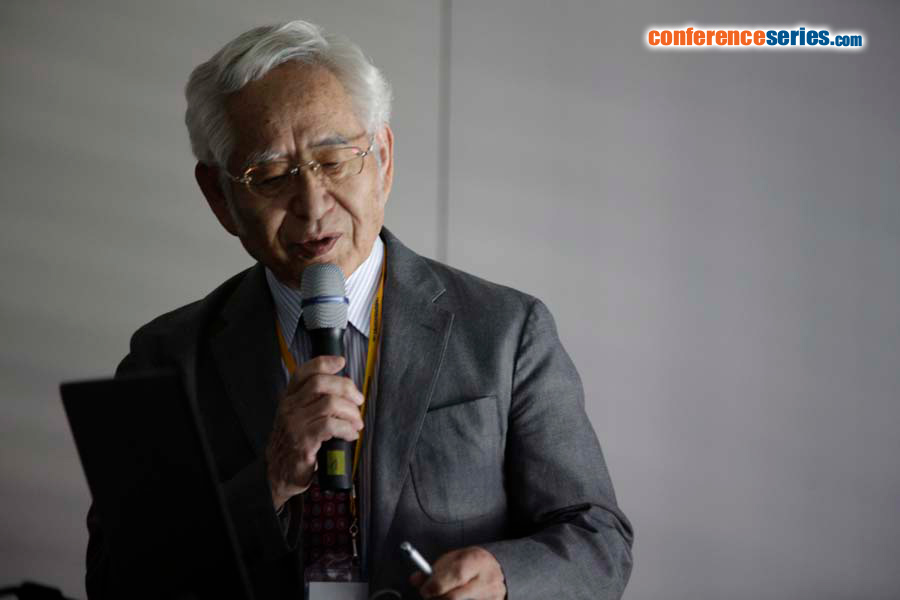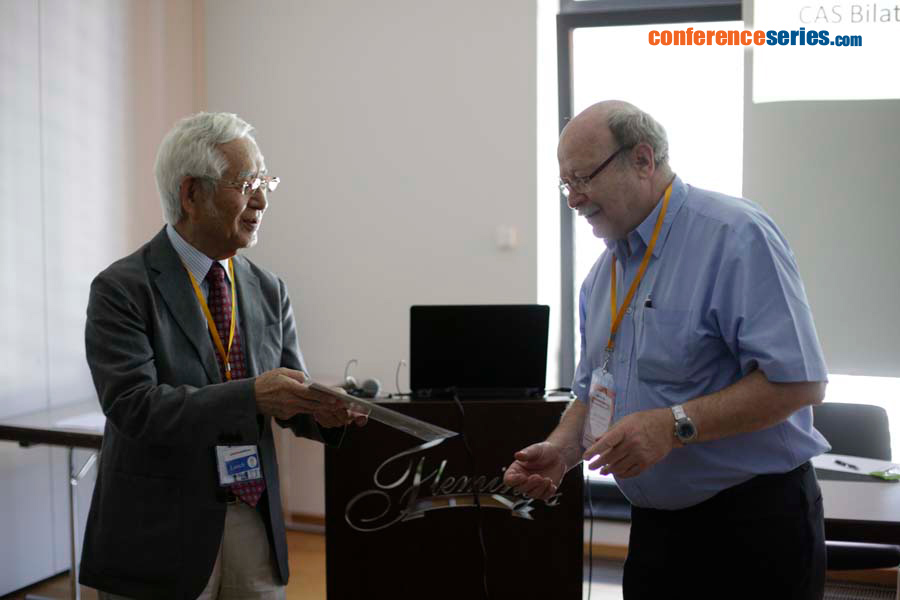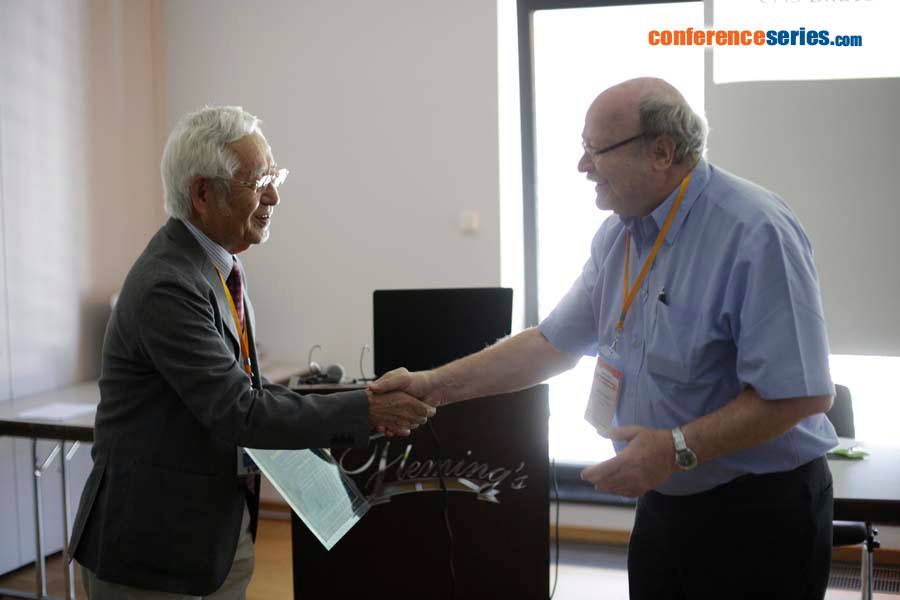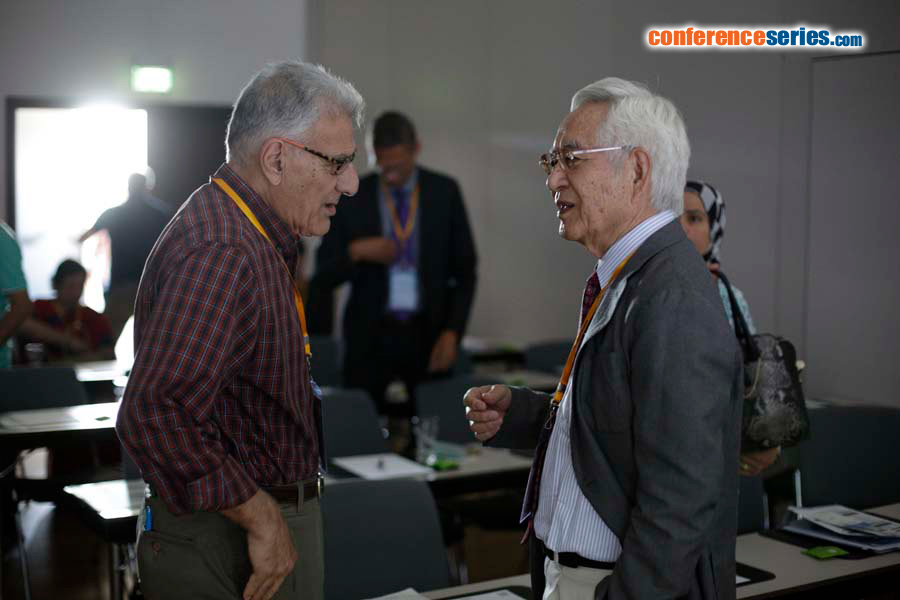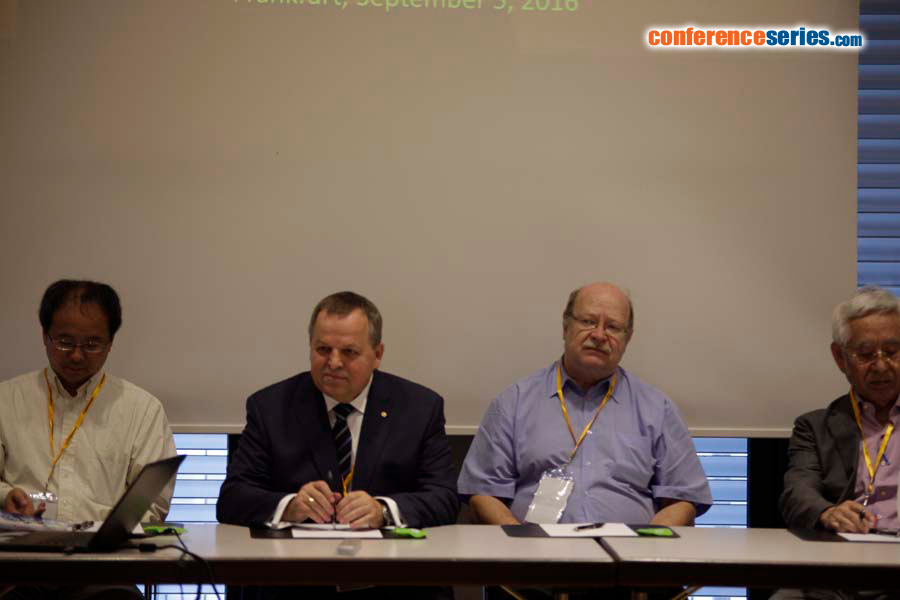
Hiroshi Maeda
Sojo University, Japan
Title: Promising clinical outcome of HPMA-polymer conjugated-pirarubicin (THP) [P-THP], which exerts three steps for cancer selective delivery
Biography
Biography: Hiroshi Maeda
Abstract
The HPMA-polymer-conjugated-THP [P-THP] showed sustain drug (pirarubicin) release only at tumor tissue, but no significant delivery to normal tissues was seen. The drug uptake studied by human pancreatic cancer cells showed that THP is taken-up more than 30-40 fold than another anthracyclines, eg. doxorubicin. The conjugate contains about 10% THP/polymer (w/w), and exhibits about 40 kDa. In vivo evaluation of antitumor activity in experimental tumors reveald excellent delivery to primary and metastatic tumors, and remarkable antitumor activity was found below toxicity level. P-THP is tolerated more than 7-10 time of free THP equivalent in mice. We concludes superiority of P-THP is attributed to three points in regard to tumor selectivity: EPR-effect, tumor pH for drug-release and drug-uptake by transporter. Having these data in hand we applied P-THP to various human cancer patients, mostly from hospice with stage IV cancers, or inoperable and / or refused conventional chemotherapy, and asked present tratment. The dose of P-THP ranged 50 to 100 mg iv once, free-THP-equivalent per week to 4 wks. Patients received multiple iv infusions. Patch-tape of isosorbide-dinitrate for NO release or ACE-inhibitor (such as verapamil) was used to overcome tumor embolism. After iv-infusion prostate cancer became normal with PSA value in 3/4 pts in 4 wks, and 1 pt showed stabilization. Ovarian cancer pt (2/2) showed great improvement in CA19-9 and CA125 after 2-3 iv-infusion. Metastatic cancer in the bone, lung and lymph nodes were cleared. No toxicity was revealed in blood-counts, liver, kidney and neuronal-functions; no apatite-loss, no hair-loss were seen.
Speaker Presentations
Speaker PPTs Click Here


